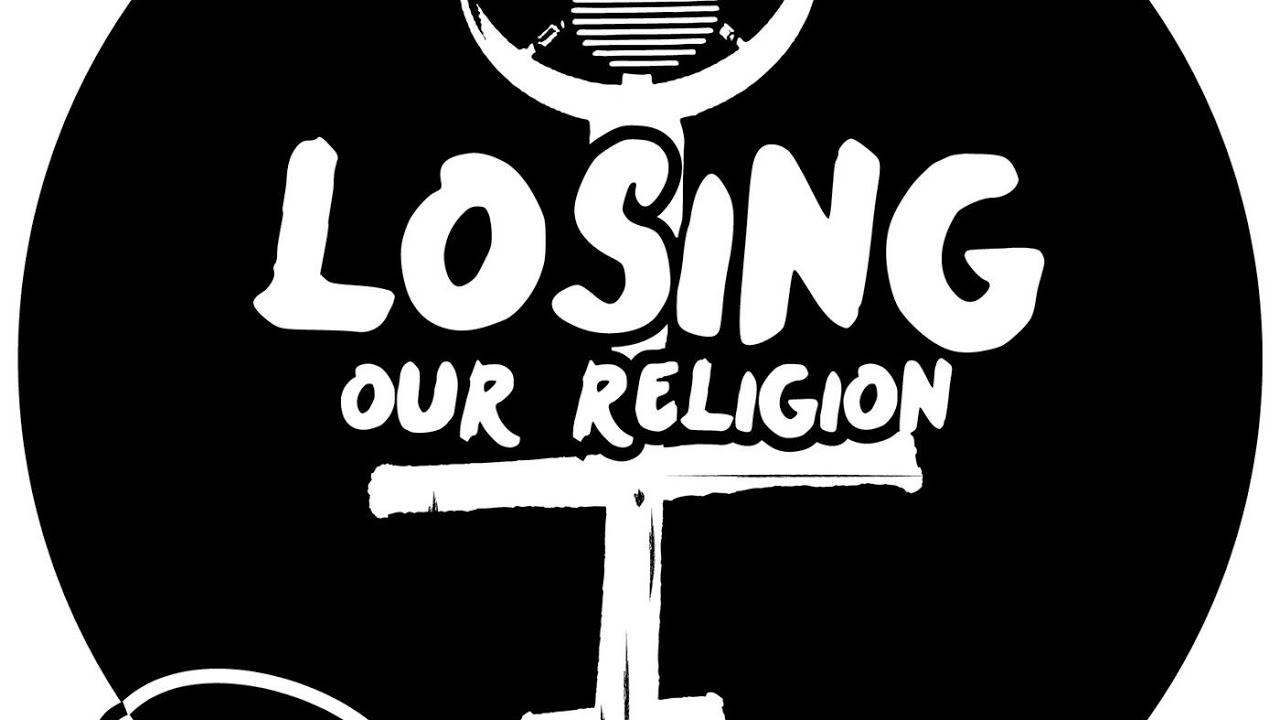
● Belief in the “prosperity gospel”—that God financially blesses faithful believers—does not have a strong effect in making individuals successful entrepreneurs, according to a study by Kevin Dougherty and colleagues of Baylor University. The researchers did find that prosperity beliefs can be linked to values associated with entrepreneurialism, such as power and achievement, but found no direct relationship between adherence to prosperity gospel beliefs and willingness to take risks, and little relation to recognizing opportunities. According to the researchers, “a belief that God will provide financial benefit to the faithful is not enough to push someone to launch a business. The relationship between prosperity beliefs and starting a business is indirect and inconsistent.” The study, which is published in the Journal for the Scientific Study of Religion (online April), analyzed data from a nationally representative survey of 1,066 working adults, with participants responding to a three-item scale to measure beliefs about faith and faithful behavior and the connection to success at work and in business.
(Journal for the Scientific Study of Religion, https://onlinelibrary.wiley.com/toc/14685906/0/0)

● Deconversion may be a gradual psychological process based on an interaction between distinctive elements of reason, criticism, and personal development, and may be increasingly relevant in an environment of disaffiliation and nonbelief. Sergio Perez and Frédérique Vallières (Trinity College, Dublin, Ireland), writing in the open-access online journal Secularism and Nonreligion (April), stress the need to pay attention to such processes given that most of the increasing number of atheists and other non-religious people in traditionally religious countries had some kind of religious exposure before abandoning religious beliefs. The researchers’ data came mainly from testimonies obtained from former clergypersons.
Deconversion appears to be driven by an intellectual impetus, with doubts sometimes starting as early as childhood, which may however be initially repressed until they become too numerous to ignore. Religious experiences also become “reinterpreted in non-supernatural terms.” The second core category in the researchers’ model of the process is defined by “a disapproval of religious institutions, ideas, and behaviors on moral and ethical grounds.” The perception of various attitudes of religious institutions and their representatives contributes to the subject’s disappointment and discontent. The third aspect is the overcoming of internal conflicts, since the waning of faith may be associated with unhappiness, even more so for clergy who start to become aware they are preaching something in which they no longer believe. Reading books and online material about alternative ideas plays an important role in the deconversion process, along with widening social circles, making clear that one is not alone. The researchers found that the process of deconversion frequently took a long time among their subjects, often up to several years.
(Secularism and Nonreligion, https://secularismandnonreligion.org)

● Contrary to the traditional narrative that portrays American Jews as the exemplary diaspora, Canadian Jews appear to be the model group in terms of retaining members in most of the established branches of Judaism, according to a new study of Canadian Jewry. As reported in The Tablet (May 6), a Jewish monthly, the researchers who conducted the 2018 Survey of Canadian Jews argue that lost in the dominant narrative of the community decline of North American Jewry is the story of “Canadian exceptionalism.” Keith Neuman (Environics Institute), Rhonda Lenton (York University), and Robert Brym (University of Toronto) found that while nearly 50 percent of American Jews intermarry, the rate in Canada is less than half that. American Jews are half as likely to attend community day school, yeshiva, overnight summer camp, and Sunday or Hebrew school compared with Canadians. While in the United States participation has dwindled among non-Orthodox Jews, the same has not been true for Reform and Conservative Jews in Canada. The study also found that Canadians are significantly more active in their religious communities, and that “American Jews are half as likely as Canadian Jews to belong to a synagogue, and even less likely to belong to other types of Jewish organizations.” Only one-half of American Jews have made a financial donation to Jewish organizations and causes, compared with 80 percent of Canadian Jews. Comparatively few American Jews have a preponderance of Jewish friends. American Jews have a smaller number of Jewish friends than their counterparts in Canada and have a much weaker connection to Israel than do Canadian Jews. In a few years, Canada’s Jewish population may exceed 400,000, making it the largest Jewish community outside of Israel and the United States.
(The Tablet, https://www.tabletmag.com/jewish-news-and-politics/284363/why-canadas-jewsare-better)

● There continues to be a decline in religious celebrations and traditions of rites of passage in the United Kingdom, according to two studies. The most dramatic change involves a drop in religious weddings and an accompanying growth of non-theistic “humanist” marriage ceremonies. The Guardian (June 2) reports that according to newly obtained figures humanist weddings have increased by a huge 266 percent over the last decade and a half, while most religious English and Welsh marriage ceremonies fell sharply. The latest Office of National Statistics data tracking the different types of weddings—religious and secular—from 2004 to 2016 found that Church of England weddings fell by 28 percent, Catholic weddings by 34 percent, and Baptist weddings by 42 percent. While 287 humanist weddings were recorded in 2004, by 2016 this figure had increased to 1,051. These humanist weddings are in effect double weddings. Because atheist/agnostic unions are not legal in England and Wales (unlike in Scotland or Northern Ireland), couples have to go through a perfunctory “official” wedding at the registry office before they exchange rings in the humanist ceremony.
The newsletter British Religion in Numbers (May) cites an analysis of the latest in a series of surveys conducted by Co-op Funeralcare of 100,000 funerals, finding that for the first time religious hymns are not among the top ten pieces of music requested at these ceremonies. In 2016, when the chart was last compiled, three hymns had still made it to the top ten—“The Lord is My Shepherd,” “All Things Bright and Beautiful,” and “Abide with Me.” By 2019, there were none on the list, having been replaced by pop songs, with Ed Sheeran and Westlife making their first appearances. As in 2016, the top three songs continued to be Frank Sinatra’s “My Way,” Andrea Bocelli and Sarah Brightman’s “Time to Say Goodbye,” and “(Somewhere) Over the Rainbow” by Eva Cassidy. The newsletter adds that the trend away from religious music at funerals parallels the decline in preferences for religious funerals and services presided over by clergy of the Church of England.
(British Religion in Numbers, http://www.brin.ac.uk/counting-religion-in-britain-may-2019/)

● A study by sociologists Yun Lu and Fenggang Yang finds that members of religious organizations are more likely to participate in political protests than nonmembers, particularly in more repressive countries. The study, published in the journal Sociology of Religion (80:2), analyzes combined data from the fifth wave of the World Values Surveys, the index of political freedom by Freedom House, and the Religion and State project. Lu and Yang first look at individual-level religious organization membership and find that it has a positive relationship with protest participation worldwide. They also find that religious people in “repressive countries are more likely to protest than their counterparts in free countries.” The authors explain that in “countries with low democratic levels, people who participate in religious groups have access to resources and obtain protection which is difficult to obtain outside of religious groups. In addition, religious groups under state restriction may become cohesive and resentful, therefore being motivated to join in protests.”
(Sociology of Religion, https://academic.oup.com/socrel)

● Islam tends toward greater orthodoxy in Muslim-dominated countries than in nations where Muslims are a minority, according to a study in the journal International Sociology (May). Four countries were studied—India, Singapore, Pakistan, and Malaysia—with the first two representing Muslim-minority nations and the last two Muslim-dominated ones. Researcher Riaz Hassan analyzed data on Muslim religiosity from surveys that he carried out in these four countries in 2007–2008 (for Pakistan and Malaysia) and in 2011 and 2015 (for India and Singapore). In measuring several dimensions of Islamic religiosity—ritualistic, devotional, experiential, ideological, and consequential (involving following divine injunctions)—Hassan found significant differences in the religious profiles of these four countries. While “fundamentalist” and Islamist movements (the latter involving the application of Islamic teachings to politics) are present in most Muslim countries, they find more fertile ground in Muslim-majority countries. Muslims’ drive to achieve equal citizenship and locate “survival goods” in countries where they are a minority limits the growth of Islamization efforts, even though Hassan acknowledges that they can also resort to violence. But “hegemonic religious cosmologies,” including not only a body of knowledge but also the ability to enforce and regulate orthodox practices and beliefs, flourish most strongly in the Muslim-majority nations.
(International Sociology, https://journals.sagepub.com/toc/iss/current)
